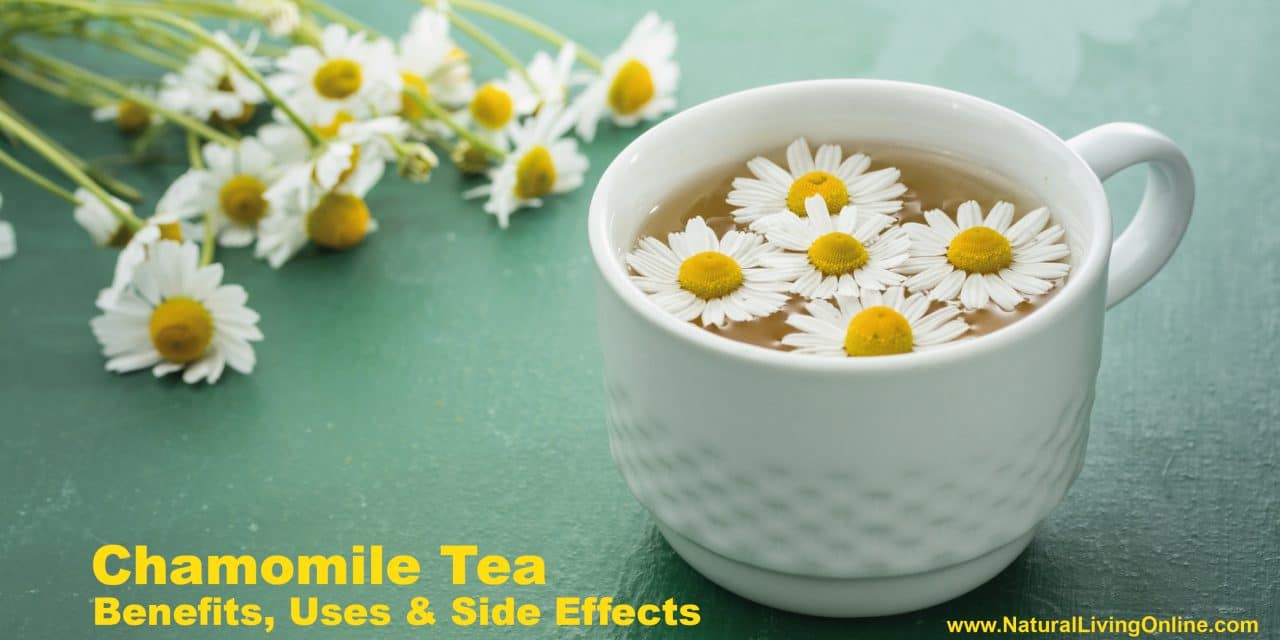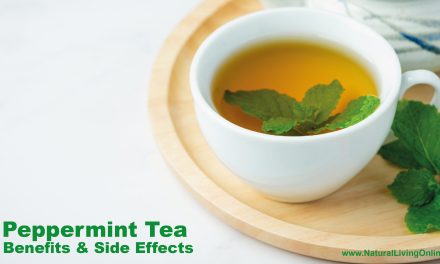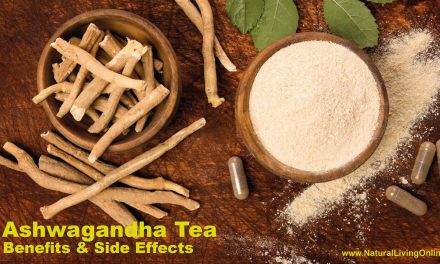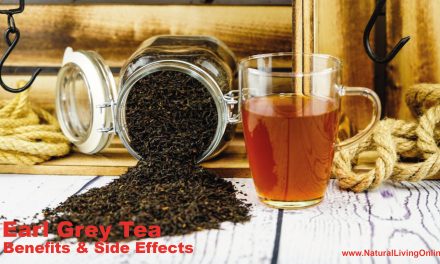Chamomile tea has been revered for centuries as a comforting and soothing herbal tea. It’s well-known for its calming effects and is often consumed to help with sleep. Chamomile tea offers numerous health benefits, including aiding digestion, reducing anxiety, and potentially lowering blood sugar levels.
This floral tea is also rich in antioxidants, which help protect the body against damage from free radicals. The mild and pleasant taste makes it a favorite bedtime beverage. Understanding its full range of benefits can help you make the most of this gentle remedy and incorporate it into your daily routine.
Exploring the history and preparation methods can enhance your appreciation of chamomile tea. It’s easy to brew at home, making it both an accessible and beneficial addition to your diet. Proper usage ensures you reap its maximum benefits without experiencing potential side effects.
Key Takeaways
- Chamomile tea is beneficial for sleep, digestion, and anxiety.
- It contains antioxidants that protect the body.
- Easy to prepare, with many ways to incorporate it into a daily routine.
Historical and Botanical Overview
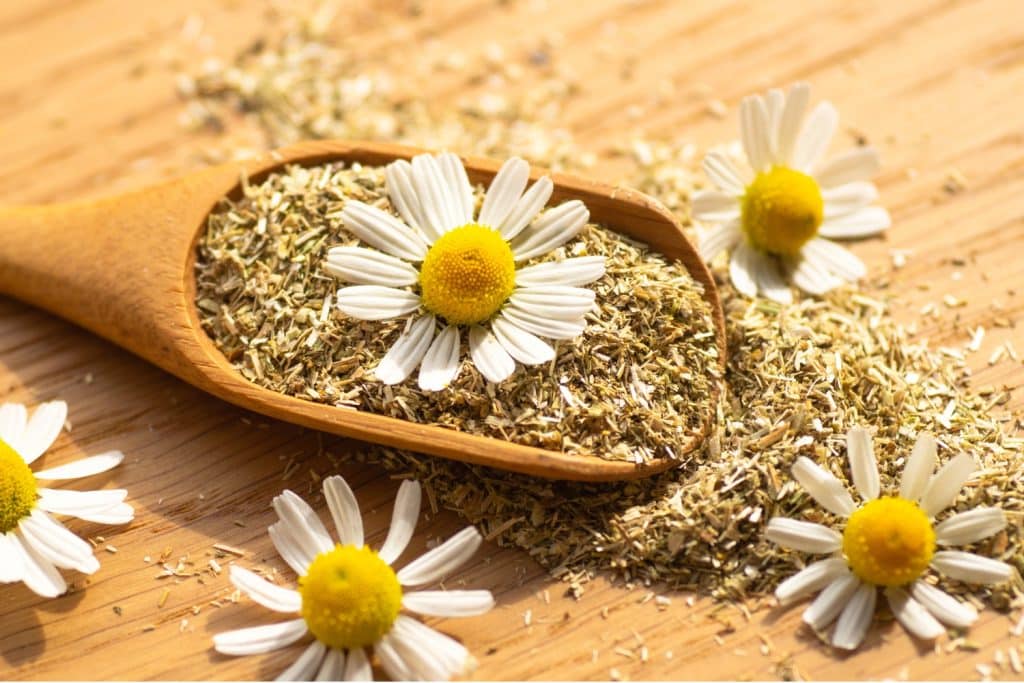
Chamomile has a long history dating back to ancient civilizations. The Egyptians, Romans, and Greeks used it for its medicinal properties.
There are two main types of chamomile: German Chamomile (Chamomilla recutita) and Roman Chamomile (Chamaemelum nobile). Both belong to the Asteraceae family, commonly known as the daisy family.
German Chamomile is more widely used and is known for its stronger flavor and aroma. It grows annually and is mainly cultivated in Eastern Europe.
Roman Chamomile, on the other hand, is a perennial plant native to Western Europe. It has a milder taste and is often used in gardens as ground cover as well as for making tea.
Chamomile flowers are dried and used to make tea, which is renowned for its calming effects. The flowers contain many beneficial compounds, including terpenoids and flavonoids.
Here is a quick comparison of the two types of chamomile:
| Feature | German Chamomile | Roman Chamomile |
|---|---|---|
| Scientific Name | Chamomilla recutita | Chamaemelum nobile |
| Type | Annual | Perennial |
| Origin | Eastern Europe | Western Europe |
| Flavor | Strong | Mild |
| Use | Mainly for tea | Tea and garden use |
Chamomile tea is known for its soothing properties and remains a popular natural remedy for promoting relaxation and aiding sleep. The rich history and various applications of chamomile highlight its lasting significance in herbal medicine.
Health Benefits and Uses
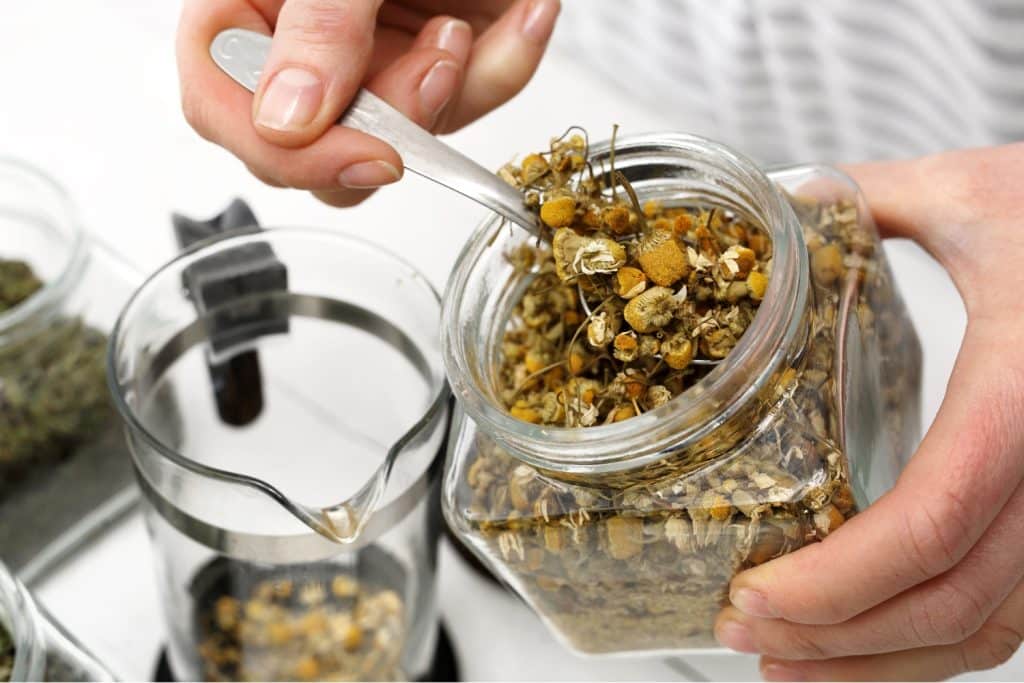
Chamomile tea offers various health benefits, including soothing anxiety, improving sleep, aiding digestion, and supporting heart health. Its properties make it a popular herbal remedy.
Soothing Anxiety and Stress
Chamomile tea is known for its calming effects. As a nervine herb, it helps to relax the nervous system. This makes it effective for easing stress and anxiety.
Studies indicate that chamomile may even benefit those with generalized anxiety disorder. Drinking chamomile tea could be a natural way to manage stress without side effects. The tea contains compounds that have mild sedative properties, which help in reducing stress levels.
Improving Sleep Quality
Many people drink chamomile tea to improve their sleep. Chamomile contains antioxidants that promote sleepiness. It can be especially beneficial for those with insomnia.
Drinking chamomile tea before bedtime aids in better sleep quality. The tea is often recommended for its mild sedative effects. For those having trouble falling asleep, a cup of chamomile tea can be an effective remedy.
Aiding Digestion and Gastrointestinal Health
Chamomile tea is also helpful for digestion. It can soothe an upset stomach and reduce bloating. The tea has anti-inflammatory properties that help in regulating digestion.
It can be beneficial for those with gastrointestinal disorders. Drinking chamomile tea can also help relieve menstrual symptoms and spasms. This makes it a useful drink for women experiencing menstrual discomfort.
Regulating Blood Sugar and Heart Health
Chamomile tea can also be beneficial for heart health. It helps in regulating blood sugar levels, which is essential for people with diabetes mellitus. The tea’s antioxidant properties also support cardiovascular health.
Drinking chamomile tea may help in lowering cholesterol levels and blood pressure. This contributes to overall heart health. Chamomile’s properties help in reducing inflammation, supporting the heart. This makes it a good addition to a heart-healthy diet.
Safety Profile and Potential Side Effects
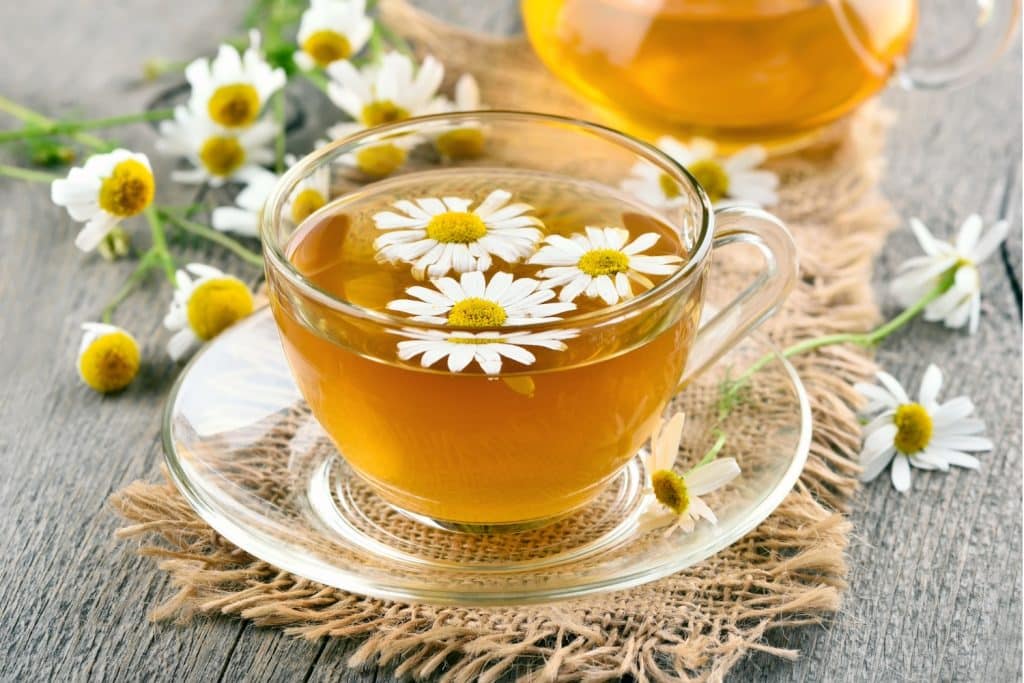
Chamomile tea is generally considered safe for most people, but it’s important to be aware of its potential side effects and interactions with medications. Allergic reactions and particular caution for individuals with certain pre-existing conditions are key considerations.
Interactions with Medications
Chamomile may interact with several medications. One significant interaction is with warfarin, a blood thinner, which can increase the risk of bleeding. Chamomile also interacts with cyclosporine, a drug used to prevent organ transplant rejection, possibly reducing its effectiveness.
Another concern is for those taking sedatives. Chamomile has a mild sedative effect, so combining it with other sedative drugs can cause excessive drowsiness. Individuals on antidiabetic medications should also be cautious, as chamomile can lower blood sugar, potentially leading to hypoglycemia.
Make sure to consult with healthcare providers before using chamomile, especially if you’re taking any of these medications.
Allergy Considerations
Chamomile can cause allergic reactions, particularly in people sensitive to plants in the Asteraceae family. This includes ragweed, chrysanthemum, marigolds, and daisies. Symptoms can range from skin rashes (like allergic eczema) to more severe reactions such as anaphylaxis.
Even though chamomile is applied topically in some cases, people with allergies should avoid its use directly on the skin. Eye irritation is also possible if chamomile gets into the eyes, especially from skin creams containing the extract.
Individuals with allergies to any of these plants should avoid chamomile to prevent adverse reactions.
Nutritional and Antioxidant Properties
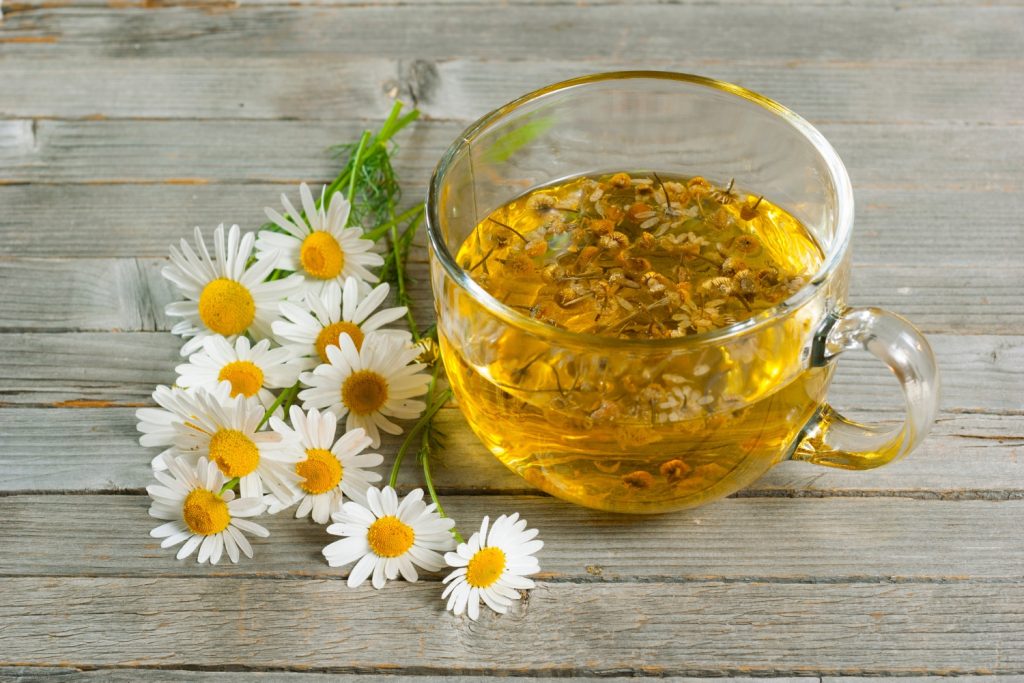
Chamomile tea is rich in antioxidants and has several nutritional benefits that support the immune system and overall health. It can also help with skin conditions and detoxification.
Inflammation and Immune System Support
Chamomile tea contains antioxidants like flavonoids which help combat oxidative stress. These properties can reduce inflammation, making it beneficial for conditions like arthritis. The tea’s antioxidants also support the immune system by fighting free radicals that can cause illness.
The anti-inflammatory effects can reduce symptoms of the common cold and other infections. Chamomile’s ability to support the immune system makes it a great option for overall wellness. Including chamomile tea in your diet can boost your body’s natural defenses against infections and inflammation.
Skin and Detox Benefits
Chamomile has antimicrobial and antioxidant properties that benefit the skin. It can help treat acne by reducing inflammation and bacteria on the skin. Its detoxifying effects assist in removing toxins from the body, leading to clearer skin.
Regular consumption of chamomile tea can improve the skin’s appearance by reducing redness and irritation. The antioxidants in chamomile promote healthier skin by preventing oxidative damage. Whether consumed or applied topically, chamomile can enhance skin health and support detoxification processes.
Preparation and Consumption
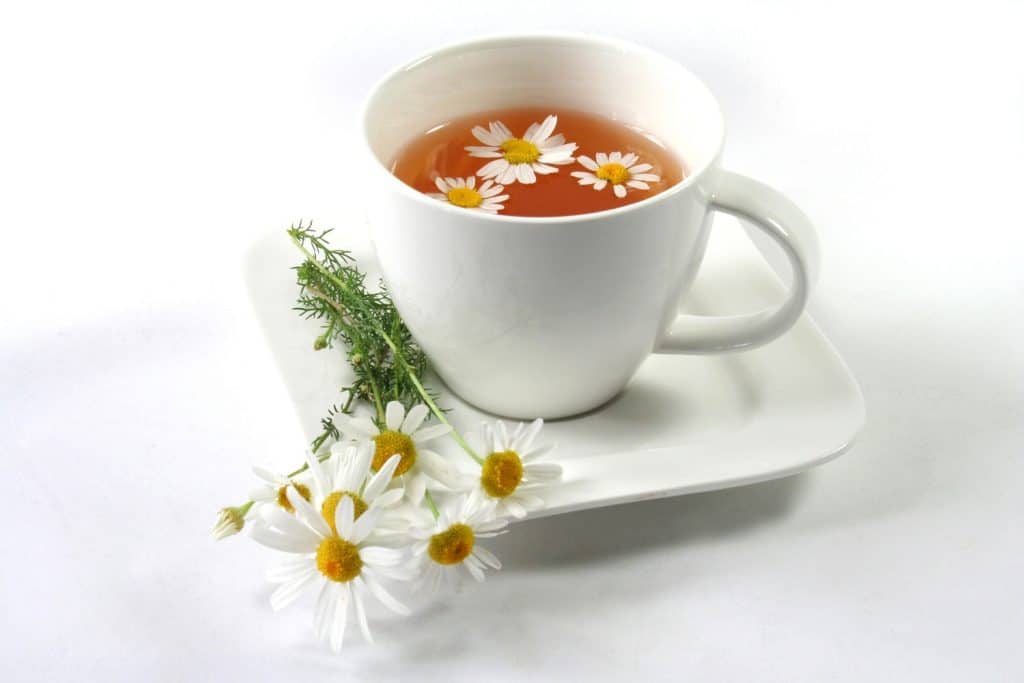
Chamomile tea is enjoyed for its various health benefits. Knowing how to brew it and exploring its alternative uses can enhance your experience.
Brewing the Perfect Cup
Start with dried chamomile flowers or chamomile tea bags. Boil water and let it cool slightly to avoid scalding the herbs. Use about one to two teaspoons of dried flowers or one tea bag per cup.
Pour the hot water over the chamomile and let it steep for five to ten minutes. Strain the flowers or remove the tea bag.
To enhance the flavor, consider adding a bit of honey or lemon. Chamomile tea is naturally caffeine-free, making it an excellent choice for a nighttime beverage. For additional benefits, combine the tea with other calming herbs like lavender.
Alternative Forms and Uses
Chamomile is available in various forms beyond tea bags. Chamomile essential oil can be used in aromatherapy to promote relaxation. Add a few drops to a diffuser or mix with a carrier oil for topical application.
Chamomile capsules are also an option, taken with water for a more concentrated dose. Additionally, chamomile can be found in skincare products for its soothing properties.
Using chamomile in a warm bath can relieve stress and muscle tension. Simply add chamomile tea bags or a few drops of essential oil to the bathwater. This herb is versatile, providing benefits in many forms.
Frequently Asked Questions
Can chamomile tea improve digestive health?
Yes, chamomile tea may improve digestive health. It is often used to relieve symptoms like an upset stomach, bloating, indigestion, and abdominal gas. According to Real Simple, a cup of chamomile tea can be a helpful remedy for these issues.
What benefits does chamomile tea have on skin complexion?
Chamomile tea can benefit skin complexion by reducing inflammation and redness. Its anti-inflammatory properties help soothe irritated skin. Applying chilled chamomile tea bags or using chamomile-infused skincare products can provide these benefits.
How does chamomile tea affect sleep quality?
Chamomile tea is known for its calming effects and may help improve sleep quality. It contains apigenin, a compound that binds to benzodiazepine receptors in the brain, producing a sedative effect, as mentioned by Liquid Insider. Drinking chamomile tea before bed can promote relaxation and reduce insomnia.
Are there any sexual health benefits associated with drinking chamomile tea?
Chamomile tea is not widely known for providing direct sexual health benefits. However, its ability to reduce stress and promote relaxation can indirectly enhance overall well-being, which may positively impact sexual health.
Does chamomile tea contribute to fertility enhancement?
There is limited scientific evidence to support the claim that chamomile tea directly enhances fertility. It may help reduce stress and promote relaxation, which are important factors during the fertility process. More research is needed to establish a clear connection.
Can drinking chamomile tea assist with weight loss?
Chamomile tea supports weight loss efforts by aiding digestion and promoting better sleep. Improved digestion helps in nutrient absorption, and better sleep supports a healthy metabolism. Chamomile tea is also a low-calorie beverage, making it a good option for those trying to manage their weight.
References:
Chamomile: A herbal medicine of the past with bright future
A Comprehensive Study of Therapeutic Applications of Chamomile
This website does not provide medical advice.
All information provided on this website, and on associated social media networks, including but not limited to texts, images, and numbers are for general information purpose only. It is not intended as medical advice and it does not include all possible precautions, side effects, or interactions that may occur. Neither NaturalLivingOnline.com nor its author/founder take responsibility for how you use this information. Statements contained on NaturalLivingOnline.com have not been evaluated by the FDA. You should conduct thorough research via multiple sources and consult your physician or qualified doctor before using any essential oil or herbal remedy. Information on NaturalLivingOnline.com must not be relied upon for medical, legal, financial or other decisions.

